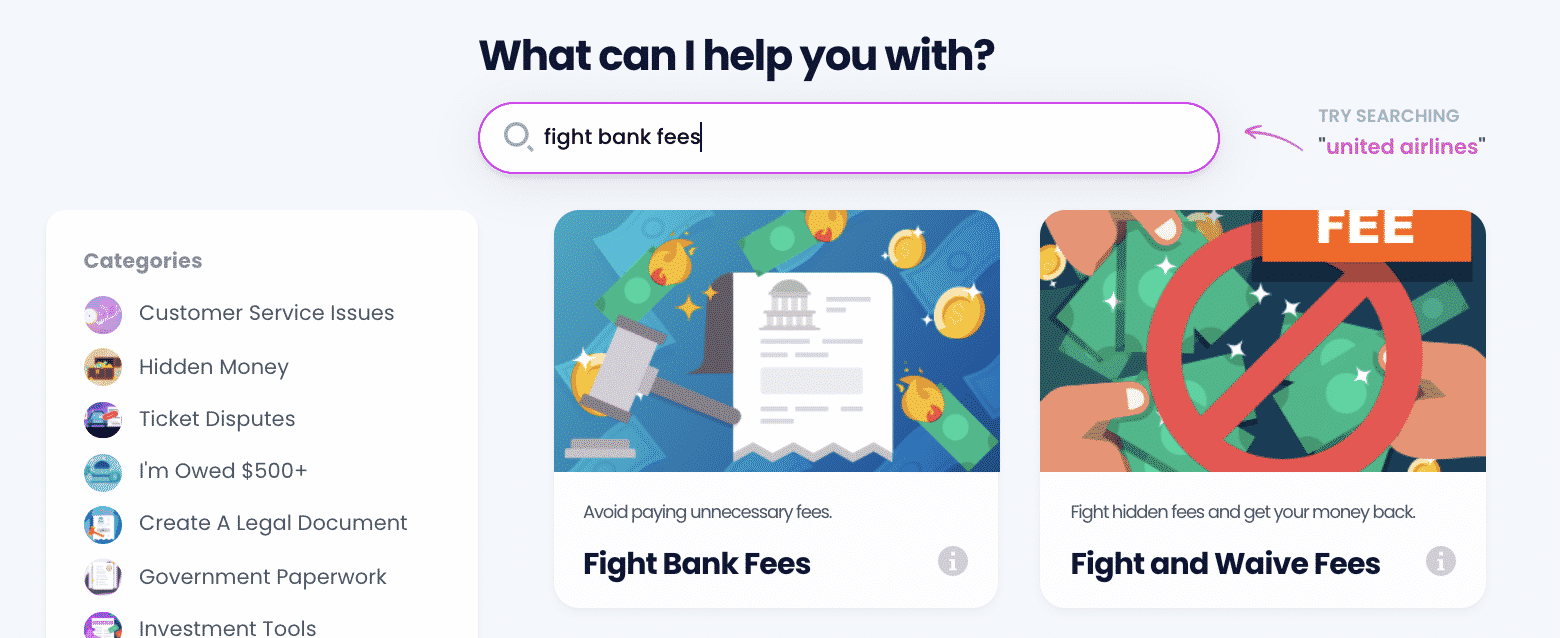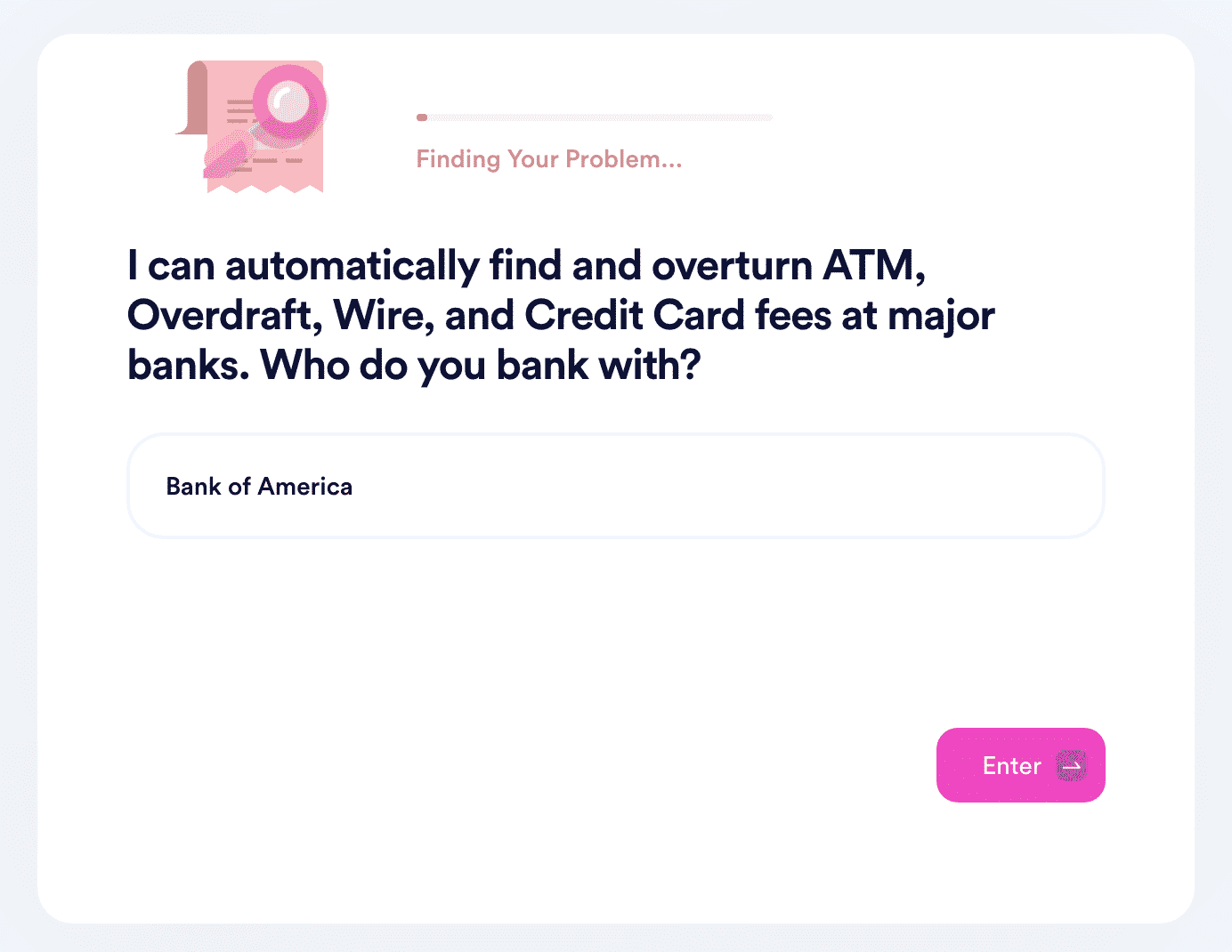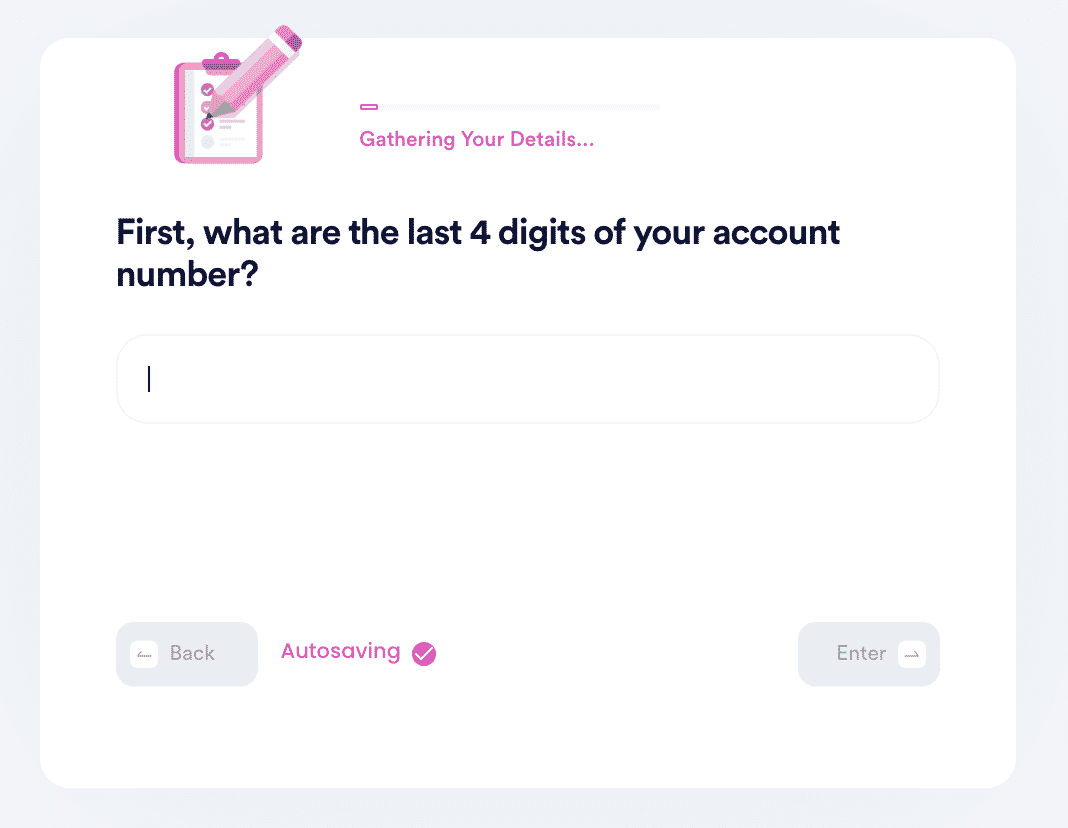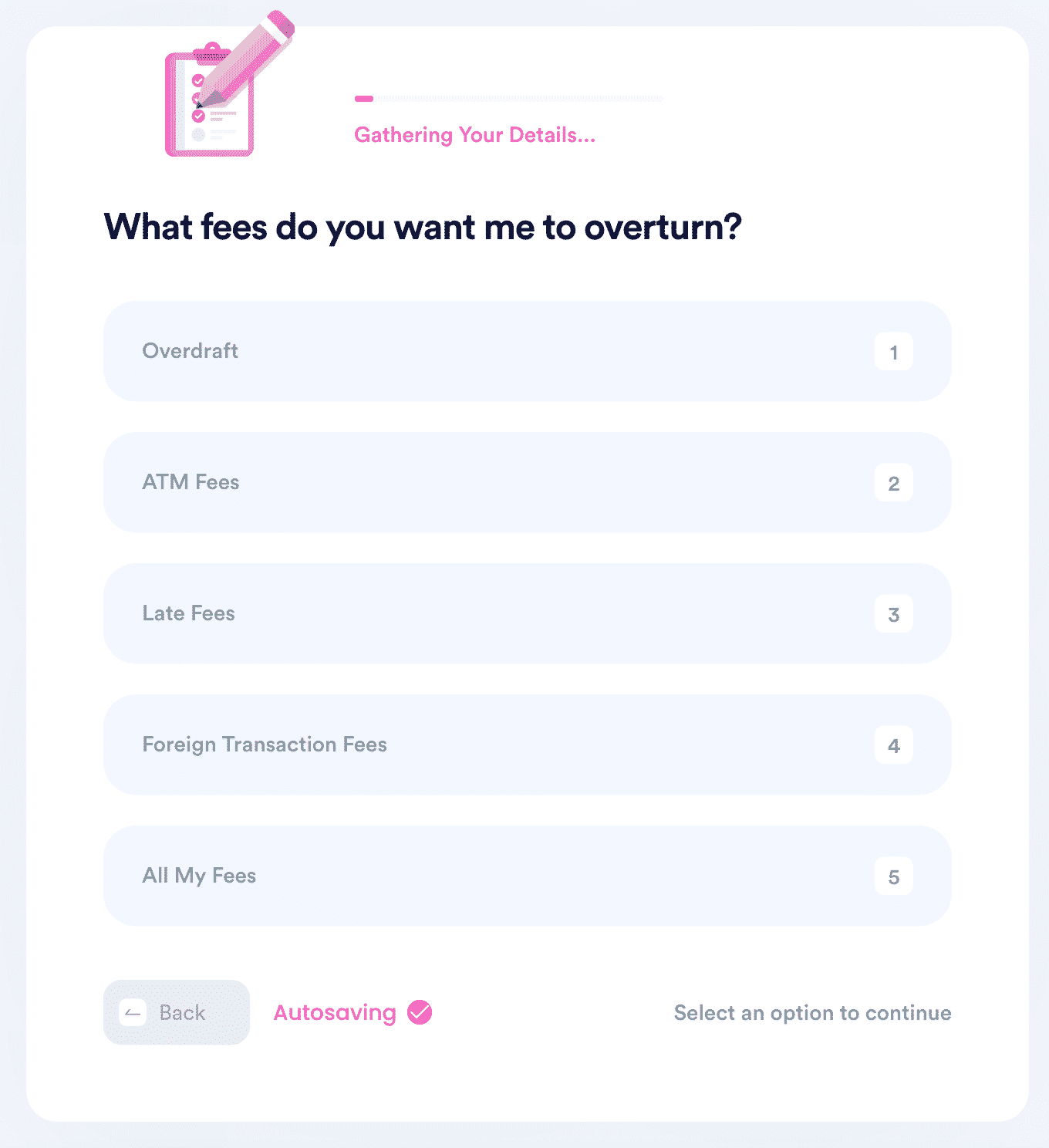Which Bank Has the Highest Possible Overdraft Fee?
At the time of writing, M&T Bank has the , at $38.50. We’ll take a closer look at that in a moment.
Did you know that every transaction you make resulting in a negative balance incurs an overdraft fee of approximately $35 in the largest banks across the United States? Overdraft fees can be annoying, especially if you are not keeping track of your account balance and the bank decides to apply the charges.
differently, and also have a limit on how many times they charge overdraft fees per day. These charges can accumulate over time without your knowledge and slap you hard when it is time to pay them.
he bank expects you to pay the overdraft fees charged overtime to get your account in good standing. However, DoNotPay has a Fight Bank Fees product that allows you to file an appeal with your bank and waive the fees.
What Is Overdraft Fee?
An is a charge imposed on your account by the bank when a payment is processed from your account when your available balance is not enough to make the payment. The bank covers the payment and protects from additional late charges on the processed payment or a bounced check.
An overdraft fee is different from an insufficient funds fee. An overdraft fee only applies when the bank covers the payment amount requested from your account so that a check doesn't bounce. On the other hand, an insufficient fund fee is when you have reached the limit and the bank doesn't cover the amount, so any payments requested from your account go unprocessed.
Before granting an overdraft, the bank will consider the following.
- Overdraft limit
- Number of overdrafts charged in a day
- Possibility of linking the overdraft to a credit card
- Ability to pay
In most cases, a bank will charge the same amount for overdraft fees and insufficient funds, even though they are different. The only difference is that the bank will protect you from bouncing checks and late payments where there is an overdraft while in the case of insufficient funds, there is no protection.
Banks are not expected by law to cover any overdraft fees, so you can opt out of any overdraft options your bank has or keep your negative balance below the overdraft balance threshold.
Which Bank Has the Highest Possible Overdraft Fee?
Since different banks charge different overdraft fees, here's a comparison of what the largest banks in the US charge as overdraft fees.
| Name of the Bank: | Overdraft Fees: | # of Overdraft Charges per day: |
| M&T Bank | $38.50 | 5 |
| BBVA Compass | $38 | 6 |
| Fifth Third Bank | $37 | 5 |
| US Bank | $36 | 4 |
| PNC Bank | $36 | 4 |
| Regions Bank | $36 | 6 |
| Truist Bank | $36 | 6 |
| Bank of America | $35 | 4 |
| TD Bank | $35 | 5 |
| Wells Fargo | $35 | 3 |
| BMO Harris Bank | $35 | 4 |
| Santander | $35 | 6 |
is M&T bank, as it charges $38.50 on checking accounts. This means that you are charged $38.50 every instance when there is an overdraw on your account.
How to Appeal High Overdraft Fees by Yourself
Overdraft fees are expensive, and the longer you leave them unattended, the worse they get. So, the solution is to appeal to the bank to waive the fees and restore your account. For this to happen, you'll need to convincingly explain to the bank your financial situation and why you cannot pay the fees.
Here's how to do it.
- Contact your bank as soon as possible by phone. Then, depending on how fast your bank responds to these methods, you can also use fax or email.
- Describe the overdraft fees you want them to waive.
- Explain your financial situation and why you're having difficulty making the payments.
- To strengthen your argument, you can reference statutes that protect you from getting hidden fees and charges.
If your argument is convincing enough, the bank will overturn the charges and restore your account without requiring any payments from you.
How to Appeal High Overdraft Fees With the Help of DoNotPay
If your bank slaps you with high overdraft fees and requires you to pay the amount in full, don't get stressed because DoNotPay can help you fight the charges. For example, if the overdraft fees are applied every month, DoNotPay can automatically appeal the charges without you doing it manually.
Here is how it works.
- Open the DoNotPay Fight Bank Fees product.

- Enter the name of your bank.

- Verify the last 4 digits of your bank account.

- Choose which fees you want to waive, including overdraft, ATM, and transaction fees.

And that's it. DoNotPay will send the appeal letter on your behalf to your bank, so your fees get refunded. If your bank has any further comments, they'll reach out to you directly.
Now that you’re getting some money back from the big banks, you’re wondering what else you can tackle with DoNotPay.
What Else Can DoNotPay Do?
DoNotPay can help you learn the following:
- Bank of America overdraft fees refund
- Chase Bank overdraft fees
- Do banks charge overdraft fees on weekends?
- Banks without overdraft fees
- TD Bank overdraft fees
- Bank of America ATM fees
- PayPal transfer-to-bank fees
- Fifth Third Bank overdraft fees
- Citizens Bank overdraft fees
- Wells Fargo checking account overdraft fees
Check out to get started.
 By
By